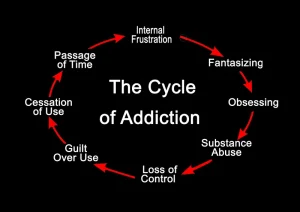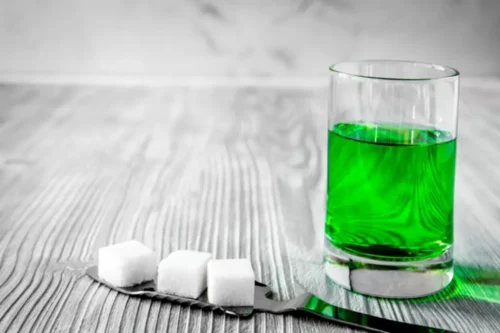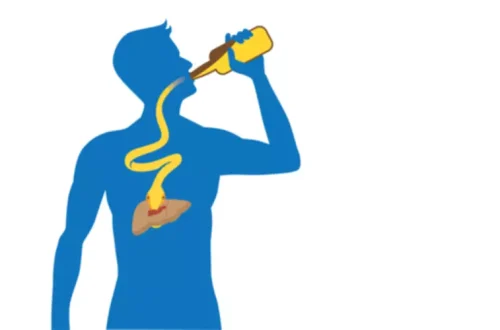
Ensure you are in the right mindset for this by overcoming shame and guilt linked to an uncontrolled moment or experience. Seeing your shame for what it is will help you understand the severity of your actions. It’s likely that you’ll feel shameful for a human error, for a behaviour which has been controlled by an addictive stimulus, rather than yourself. To break away from shame, you must see your experience with drugs, alcohol or addiction as an illness, rather than a choice.

Hypersexuality: What Causes It and How To Get Help
- While this can take some time, while professional intervention may be required, it’s important that you work on your mental health state and your view on self-worth.
- Treatment depends on the underlying cause but may include medication, therapy, and support groups.
- The practice boosts motivation, optimism, resilience in times of stress or failure.
- Furthermore, both Yoga and exercise create an opportunity for positive self-talk, replacing negative thought patterns with messages of strength, resilience, and positivity.
- A person feeling shame may not be able to recognize their positive qualities and may view themselves as flawed, dishonorable, or dysfunctional.
They can significantly affect one’s mental health, relationships, and overall progress in recovery. When addicted to a substance, a person often feels ashamed that they cannot control their using behaviors. They see this as a failure to live up to their own standards or to the standards of family or society. Scientists who have studied shame in addiction note that people who feel shame may blame themselves for negative events and view their “bad” behavior as an unchangeable part of who they are. Thus, shame may become a risk factor for continued substance use or relapse.
Understanding and Addressing Shame and Guilt in Addiction Recovery
- The person may become super-sensitive to what feels like criticism, even if it isn’t, and may feel rejected by others.
- But this is not necessary if we are willing to institute and then defend a positive mental stance toward all situations, and toward ourselves as well.
- In addition, consider joining local support groups or seeking professional help from therapists or counselors if needed.
- It’s a challenging and daunting experience for individuals who face addiction, often struggling with shame and guilt.
- They are both common feelings which can come from addiction or drug abuse.
Or they may cite circumstances beyond their control as the provocation for their inappropriate actions. Due to the shame, a person may be isolated from other people, causing a detrimental impact on relationships and making it hard to find strong social support. Hadiah is a counselor who is passionate about supporting individuals on their journey towards mental well-being.
New Study Reveals Long-Term Outcomes in Eating Disorders
Our treatment programs vary in duration based on individual needs and progress. We offer flexible options, including short-term and long-term programs, to support each client’s unique journey to recovery. For support with addiction recovery, reach out to our team at Action Rehab. We are armed with skills and services to ease your addiction recovery journey. Through those shifts in behaviour, guilt and shame will present themselves, where the latter can be difficult to get over. Here is where the cycle will continue, where drugs or alcohol, or further addictive stimuli will be used as self-help, as a form of self-medication.

This therapy combines cognitive-behavioral techniques with mindfulness to help clients manage emotions and develop coping skills. Self-compassion proves to be effective in combating negative self-talk; it equips the individual with the ability to handle negative emotions more flexibly than those who lack it. The practice boosts motivation, optimism, resilience in times of stress or failure. Engaging regularly in self-care activities helps prevent relapse during addiction recovery by helping one cope better with stressors and challenging emotions like shame and guilt. Shame and guilt are common emotions that can hinder recovery, and self-forgiveness is an effective tool for overcoming these negative feelings.
Shame often arises when an individual feels inadequate or unworthy, constantly reminding them of their mistakes or shortcomings. This emotion perpetuates destructive behaviors in individuals as they strive to numb these feelings through substance abuse. Guilt, on the other hand, is a more constructive emotion that occurs when an individual has violated their moral code. However, excessive guilt can become counterproductive and lead to self-blame and low self-esteem. To continue to live a life that is free of feelings of guilt and shame, acknowledge your value system.
- This includes any healthcare professionals, therapists, and close friends or family.
- They may feel as though they have failed themselves and others, leading to a sense of inadequacy and self-blame.
- The fourth step to addressing guilt and shame in recovery is practicing social hygiene.
- Over time, the client develops new coping mechanisms and gains confidence in handling difficult emotions.
Horticultural Therapy Effectively Reduces Agitation and Depression in Dementia Patients, Finds New Study
- Across research samples, shame-proneness was positively related to substance use problems, while guilt-proneness had an inverse relationship (unrelated).
- Scientists who have studied shame in addiction note that people who feel shame may blame themselves for negative events and view their “bad” behavior as an unchangeable part of who they are.
- The individuals would often speak about all the time lost with their family and express remorse for not being the individual they were meant to be before falling victim to the pitfalls of addiction.
- They often speak of the embarrassment of getting arrested and coming to prison yet again all due to not being able to leave their drug of choice alone.
- Engage in mindfulness meditation or other mindfulness practices to increase awareness of the present moment and reduce rumination on past mistakes.
Often, they’ll get help for addiction when family or friends motivate them. Take proactive steps to make amends for past behaviors that contribute to feelings of guilt and shame, where appropriate and without causing harm to yourself or others. Research indicates that ACT can be especially helpful for individuals struggling with addiction who are also dealing with shame and guilt.


Shame cuts much deeper than guilt, and for this reason it poses an even greater threat to your sobriety. We are dedicated to providing you with the support https://ecosoberhouse.com/ and healing you deserve. Write down your recovery story and dive a bit deeper, focusing on the challenges you’ve overcome and how you’ve grown.
Of course, it is always important that you are completely honest when it comes to your past and present situation when it comes to your addiction. This will allow people like healthcare workers, therapists, and those in your support system to help you in the best way possible. Golden Gate Recovery, in Martin County, CA, is an accredited guilt and shame in recovery drug and alcohol rehab for men. We have certified addiction specialists experienced in treating individuals with substance use disorder and mental health issues, which often go hand in hand. Our therapists are well-versed in approaches that will help you learn to see mistakes as behaviors and not as a representation of your self-worth.
